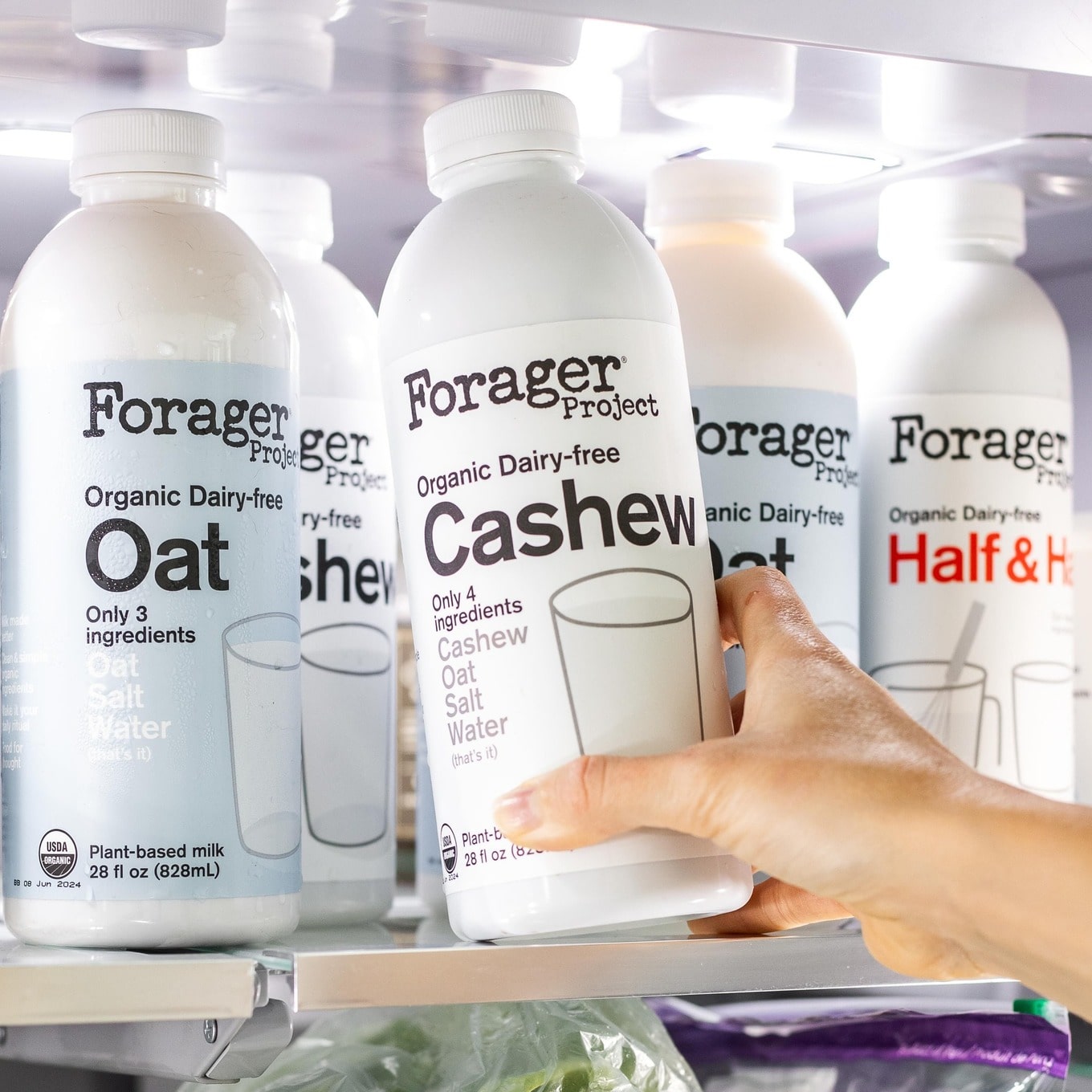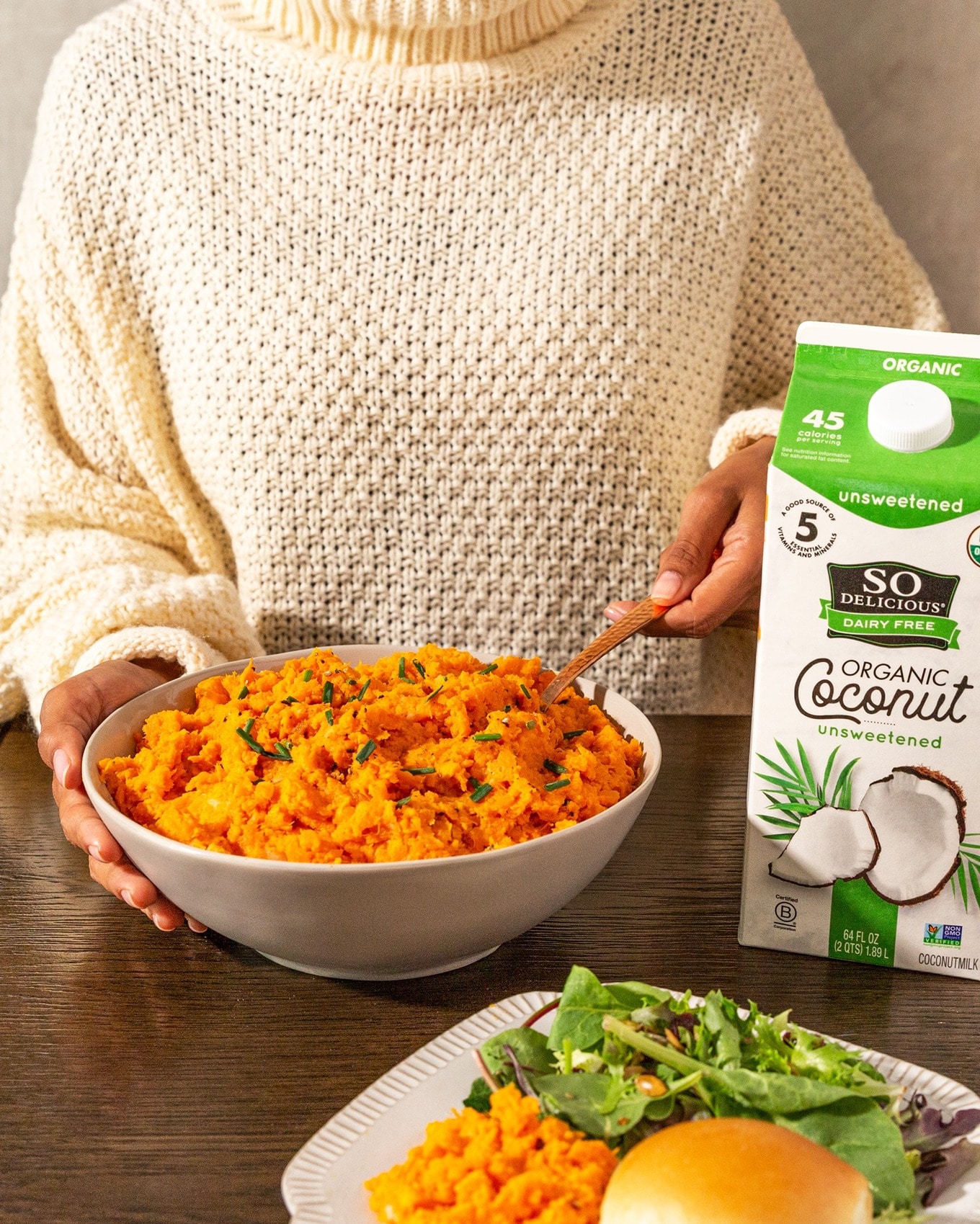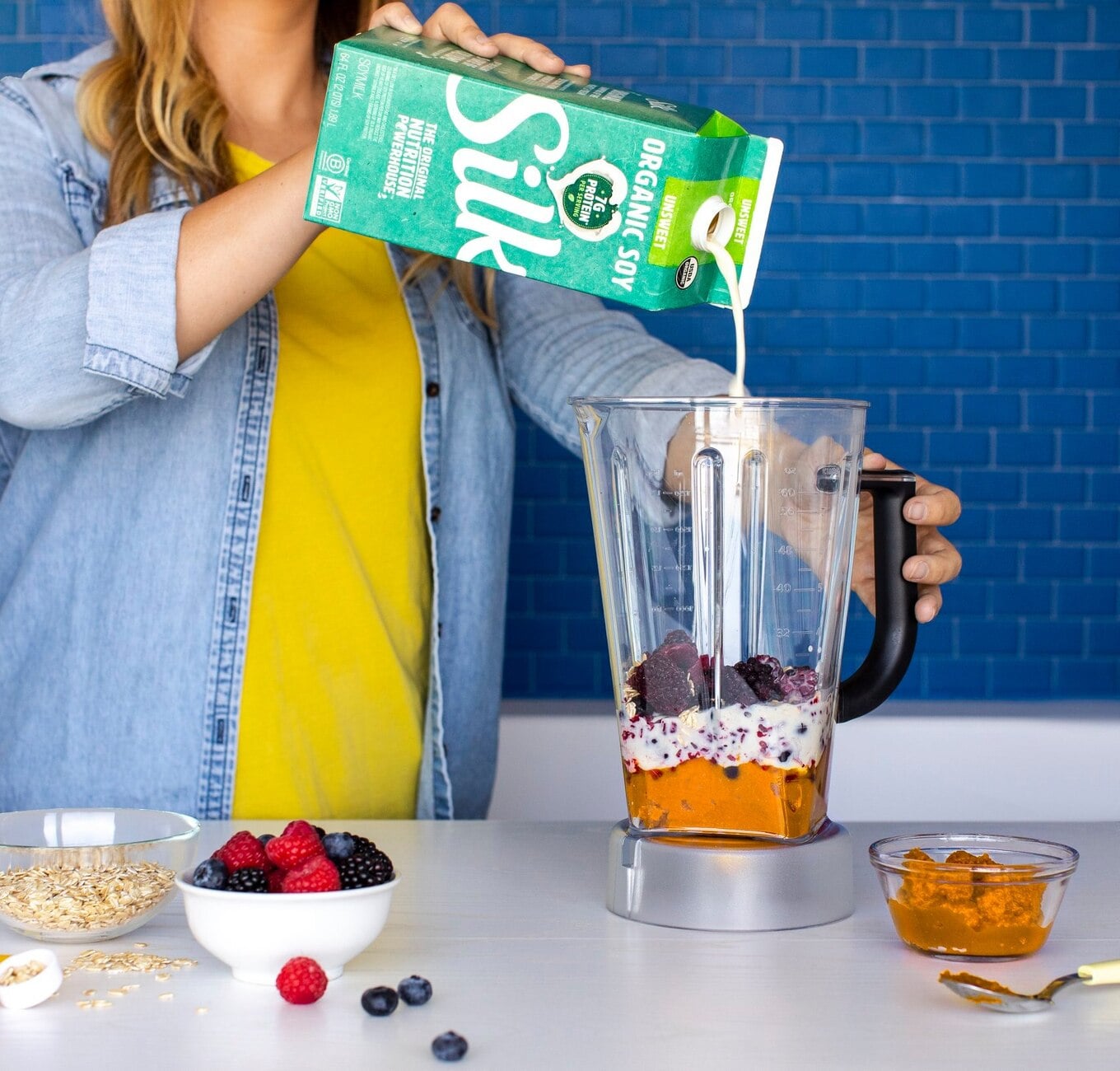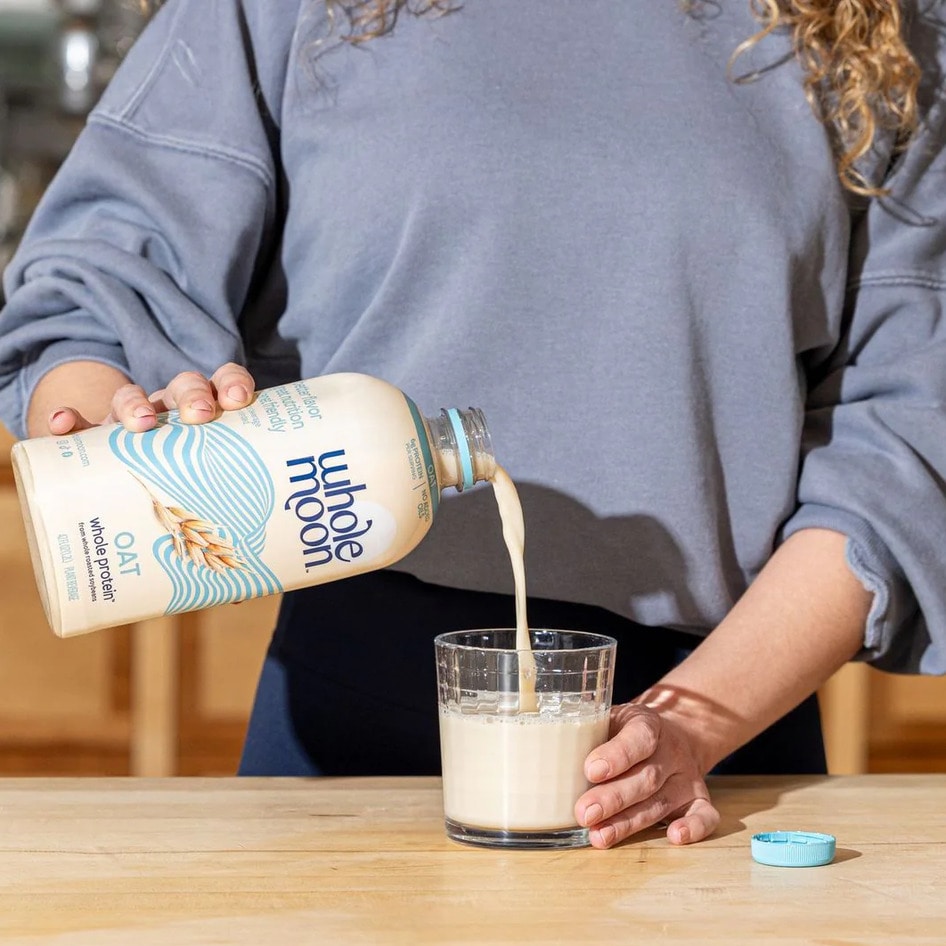Maybe you’re a proud soy boy or an oat milk lover. Perhaps you like tropical coconut milk instead of dairy. For many reasons, more Americans are choosing dairy-free milk these days, and the trend is not stopping anytime soon.
 Getty
Getty
With the global market for dairy alternatives valued at approximately $32.7 billion in 2024 and expected to nearly double to $66.9 billion by 2030, it is clear that consumers are continuing to reach for dairy-free milks.
But which are the healthiest? Nutrition experts agree that each type of milk offers distinct nutritional benefits, and choosing plant-based milk over dairy has other benefits, as well.
Plant milk versus dairy
While there is no binary answer to whether or not any plant milk is inherently “healthy,” Michael McKinney, a physician and certified nutritionist, points out that plant milks offer some benefits over dairy.
“The consumption of plant-based milk has more benefits than that of dairy milk,” McKinney tells VegNews. “They are usually less [in] saturated fats and calories implying that they are better for the heart.”
McKinney points out that many plant milks on the market contain added calcium and vitamin D to enhance their nutritional profiles. Dairy-free milks are also a great option for the 30 to 50 million Americans who are lactose intolerant.
 Forager
Forager
“Also, plant milks are not processed with animal enzymes, especially lactose and hence will be favorable to the large population that is allergic to lactose,” McKinney says. “They also have no cholesterol and are less in environmental imprint, an extra benefit that consumers care about increasingly.”
Oat milk: a heart-healthy and nutrient-rich option
Oat milk has gained substantial popularity due to its creamy texture and naturally sweet taste, making it a versatile addition to everything from coffee to smoothies. Its growth in the market is driven by its appeal to those looking for a plant-based milk that closely mimics the taste and texture of cow’s milk.
However, oat milk has become a topic of skepticism among what leading brand Oatly calls “amateur nutritionists” on TikTok who falsely claim that ingredients such as rapeseed oil (and even water) in oat milk are “toxic.” What do the experts say?
 Oatly
Oatly
“Most of the fats in oat milk come from heart-healthy unsaturated fats, while the starch is a complex carbohydrate that makes one full with sustained energy levels to have stable blood sugar,” George Yang, a Registered Dietitian Nutritionist (RDN), tells VegNews. “Fiber in oat milk helps to keep one fuller and more satisfied, promoting gut health by encouraging proliferation of good bacteria.”
“Overall, oat milk’s nutrient-dense profile entertains the potential to be an outstanding addition to your health-conscious lifestyle,” Yang says.
McKinney adds that oat milk is also an excellent choice for individuals focused on maintaining cardiovascular health due its beta-glucan content which aids in the reduction of cholesterol.
The benefits of oat milk are also cumulative, according to Trista Best, Registered Dietitian at Balance One Supplements. “When you drink oat milk regularly, especially if you are replacing cow’s milk with this alternative, you’ll see improvements in many areas of health,” Best tells VegNews. “The consumer will likely experience reduced mucus production, improved immune health, and lower rates of inflammation and gastrointestinal distress.”
Coconut milk: the low-carb, energy-boosting alternative
Coconut milk, known for its rich flavor and creamy consistency, has been a staple in many countries, particularly Southeast Asia, and is now a popular dairy-free alternative. While the growth of some dairy-free milk categories are slowing, recent sales data show that coconut milk has seen a 12.6 percent uptick in the US, indicating its growing acceptance among consumers looking for functional foods.
 So Delicious Dairy Free
So Delicious Dairy Free
BECOME A VEGNEWS VIP: Get exclusive product deals, freebies, and perks galore!
And choosing coconut milk comes with health benefits, too. According to Krutika Nanavati, a Registered Nutritionist, coconut milk contains essential vitamins and minerals, including vitamin C, iron, and potassium, and some studies have suggested it may possess anti-inflammatory properties.
“Coconut milk, derived from the flesh of mature coconuts, offers a unique nutritional profile,” Nanavati tells VegNews. “It is rich in medium-chain triglycerides (MCTs), a type of saturated fat that is metabolized differently than long-chain saturated fats.”
“MCTs can boost metabolism, provide a quick source of energy, and may offer potential benefits for weight management,” Nanavati says.
McKinney explains that coconut milk also contains high levels of saturated fat Lauroyl, which has antimicrobial qualities. “The milk also contains natural cream working well both as a drink and when cooked, especially for those making vegan and paleo meals,” McKinney says.
The versatile milk is also suitable for ketogenic diets due to its low carbohydrate content, according to Amie Alexander, an Accredited Dietitian at Nutri Peak. “Coconut milk offers a completely different profile that is intrinsically very low in carbohydrates, making it ideal for those on a low-carb or ketogenic diet,” Alexander tells VegNews.
Soy milk: the high-protein classic
Soy milk is a legend, with some of its earliest mentions occurring on Chinese stone slabs from the 1st to 3rd centuries. Eastern cultures have long consumed soy milk instead of dairy, and its high protein content and nutritional density can benefit present-day humans, too.
As one of the few plant-based milks that provides all nine essential amino acids, soy milk is a complete protein source, making it nutritionally comparable to cow’s milk.
 Silk
Silk
“Fortified soy milk is the most nutritionally similar to cow’s milk and is considered by the Dietary Guidelines for Americans to meet our ‘dairy’ needs,” Kassidy Johnson, an RDN and an elite track athlete, tells VegNews.
In fact, Johnson points out that eight ounces of unsweetened fortified soy milk contains approximately 90 calories, seven grams of protein, and similar amounts of calcium, vitamin A, and vitamin D as cow’s milk, along with many other important micronutrients, such as potassium, magnesium, and vitamin B12.
“Most cow’s milk in the United States is also fortified with vitamin D, so fortification of plant milks is not abnormal and is an efficient way to help meet nutrient needs of Americans,” Johnson says.
In addition to its protein content, soy milk is a rich source of isoflavones, compounds linked to improved heart health and bone strength. These properties make soy milk ideal for a wide range of dietary needs, from supporting muscle maintenance to promoting overall health.
Dairy-free milk for every diet
Beyond oat, coconut, and soy milk, the world of plant-based milk is vast and growing, each with varying individual and collective health benefits.
Other plant-based milks, such as almond, cashew, rice, pea, and emerging varieties such as macadamia and hazelnut, offer options tailored to specific dietary needs. For instance, almond milk is favored for its low-calorie count and antioxidant-rich vitamin E content, which supports skin health and protects cells from oxidative damage.
 Sproud
Sproud
Rice milk is another hypoallergenic option, making it ideal for individuals with multiple food sensitivities. Similar to its legume cousin soy, pea milk offers all nine essential amino acids and features a high protein content with the added suitability for people avoiding nuts, soy, or gluten. Plus, there’s pistachio, buckwheat, and even potato milk to bring unique flavors and benefits into the mix.
Ultimately, all of these options give consumers a way to enjoy familiar foods like milk and cookies or cereal in the morning, without sacrificing their health.
“Dairy is a highly inflammatory and mucus producing product,” Best says. “Both of these have negative health consequences.”
“Increased mucus can cause illnesses to be more severe than necessary and cause issues with breathing, like worsening asthma,” Best says. “Chronic, low-level inflammation is known to cause cellular damage and that is connected with many of the chronic conditions common to the Western world,” she says.
For more plant-based stories like this, read:
JUMP TO ... Latest News | Recipes | Guides | Health | Subscribe









